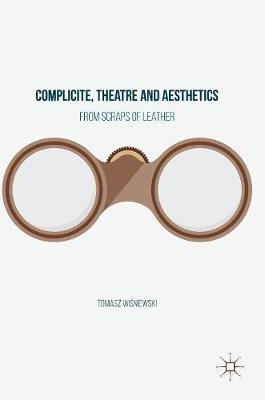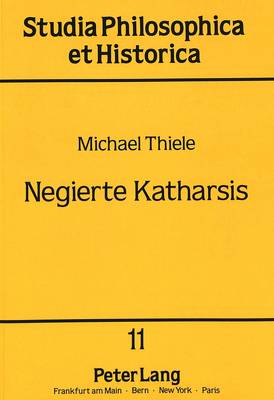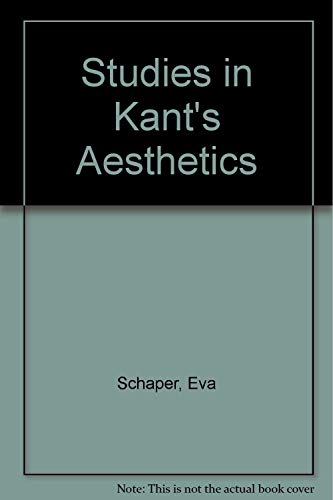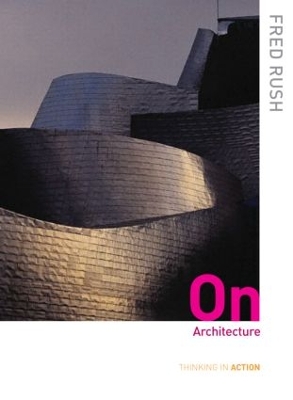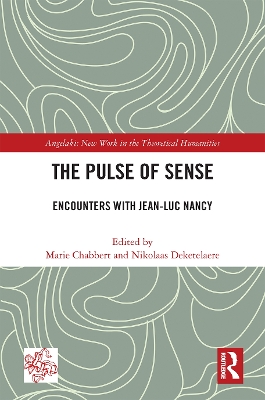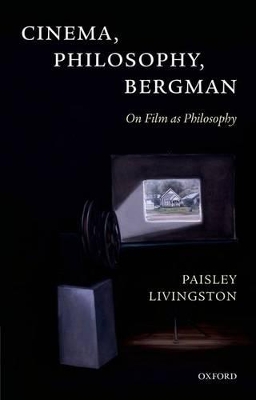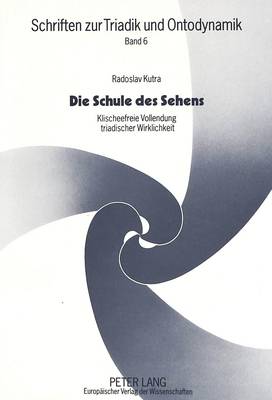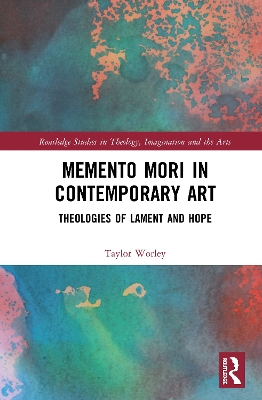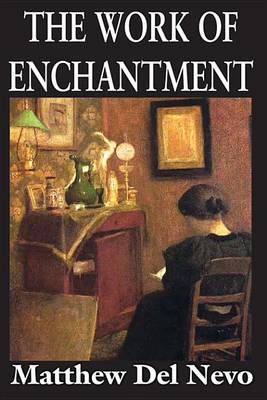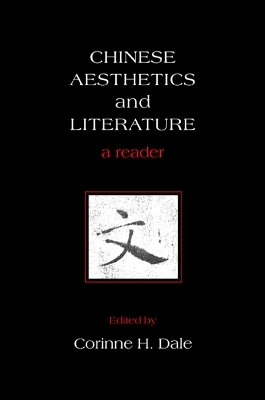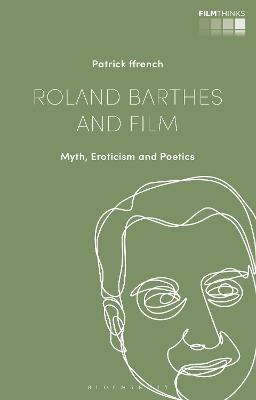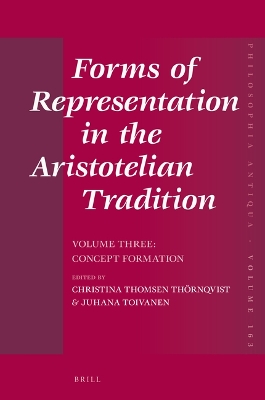This book presents a pioneering critical study of Complicite's work throughout the years. Drawing on an extensive overview of the available research material - including interviews, manuscripts and the company's own archive - the book is framed within a clearly defined research perspective and explores the singularity of theatre communication. The book results from an encounter between the London-based - but cosmopolitan in scope - company, and a fresh application of the form-oriented scholarshi...
Kritik und Wissenschaftsgeschichte (Die Einheit der Gesellschaftswissenschaften, #54)
by Gunnar Andersson
Negierte Katharsis (Studia Philosophica Et Historica, #11)
by Michael Thiele
In der vorliegenden Untersuchung werden die unterschiedlichen Begriffe von Katharsis bei Platon, Aristoteles und Brecht dargestellt. Der Autor entwickelt daraus eine Theorie des politischen Theaters, die Brecht an seinem Anspruch misst, nichtaristotelisches Theater machen zu wollen, um die Katharsis zu verhindern. Der Brechtsche Ansatz wird als verfehlt zuruckgewiesen."
Architecture is a philosophical puzzle. Although we spend most of our time in buildings, we rarely reflect on what they mean or how we experience them. With some notable exceptions, they have generally struggled to be taken seriously as works of art compared to painting or music and have been rather overlooked by philosophers. In On Architecture, Fred Rush argues this is a consequence of neglecting the role of the body in architecture. Our encounter with a building is first and foremost a bodily...
Jihadi ideologues mobilize Muslims, especially young Muslims, through an individualist-centered interpretation of Islam. Appealing to a classical defense doctrine, they argue that the mandates of jihad are the individual duty of every Muslim and therefore transcend and undermine both the authority of the state and the power of parental control. Yet emphasizing the duty and right of individually initiated jihad is only one side of do-it-yourself Islam. The other involves protecting the purity of...
The Pulse of Sense (Angelaki: New Work in the Theoretical Humanities)
This volume stages a series of encounters between the French philosopher Jean-Luc Nancy and leading scholars of his work along four major themes of Nancy's thought: sense, experience, existence, and Christianity. In doing so, the volume seeks to remind readers that Nancy's sens has many meanings in French: aside from those that easily carry over into English, i.e., everything to do with "meaning" and "the senses"; it also includes the "way" they are "conducted," the "direction" they take, the...
Examining afresh the 16th-century style of mannerism, Sjoerd van Tuinen synthesises philosophy and aesthetics to demonstrate not only the contemporary relevance of mannerism but its broader significance as a form of modal thinking. Beyond a style of art that spurned the balance and proportion of earlier Renaissance painting in favour of compositional instability and tension, this book looks a-historically at mannerism to investigate what it can tell us about continental modal m...
The increasingly popular idea that cinematic fictions can 'do' philosophy raises some difficult questions. Who is actually doing the philosophizing? Is it the philosophical commentator who reads general arguments or theories into the stories conveyed by a film? Could it be the film-maker, or a group of collaborating film-makers, who raise and try to answer philosophical questions with a film? Is there something about the experience of films that is especially suited to the stimulation of worthwh...
Kunst Und Weltgefuehl (Europaeische Hochschulschriften / European University Studie, #427)
by Ingo Kaiserreiner
Der Autor stellt die Kunsttheorie Oswald Spenglers dar und entwickelt in der Kritik dazu eigene kunsttheoretische Uberlegungen. Er wendet sich gegen Spenglers Auffassung, die Renaissance sei eine Verirrung der abendlandischen Seele gewesen und begrundet seine eigene Sicht der Renaissance als einer zutiefst abendlandischen Kunst. Untersucht wird weiterhin Spenglers totales Missverstandnis der Kunst seiner eigenen Zeit. Spenglers Ansicht, der Expressionismus sei die Scharlatanerie einer Verfallsze...
Die Schule Des Sehens (Schriften Zur Triadik Und Ontodynamik, #6)
by Radoslav Kutra
Dieses Buch versucht durch eine Orientierung im schopferischen Prozess der Geschichte zur Losung der Kulturkrise beizutragen. Mittelpunkt dieser Orientierung ist die Entdeckung des Sehens, die der neuen Kulturepoche als ur-moderne These von den Impressionisten und Cezanne in die Wiege gelegt wurde. Sie wurde jedoch von der Entwicklung der Moderne zum Teil missverstanden. In der Entdeckung des Sehens erkennen wir jedoch den auch von der Postmoderne missachteten Ursprung der modernen Zeit, der in...
Memento Mori in Contemporary Art (Routledge Studies in Theology, Imagination and the Arts)
by Taylor Worley
This book explores how four contemporary artists—Francis Bacon, Joseph Beuys, Robert Gober, and Damien Hirst—pursue the question of death through their fraught appropriations of Christian imagery. Each artist is shown to not only pose provocative theological questions, but also to question the abilities of theological speech to adequately address current attitudes to death. When set within a broader theological context around the thought of death, Bacon’s works invite fresh readings of the New...
Chinese Aesthetics and Literature (SUNY series in Asian Studies Development)
UEber Die Prinzipien Des Schoenen / de Pulchrii Principiis
by Bruno Bauer
-An All-Disastrous Fight- (Munsteraner Monographien Zur Englischen Literatur,, #6)
by Georg Heinemann
James Thomson (B.V.) bildet in der Literaturgeschichtsschreibung des 19. Jahrhunderts allenfalls eine Marginalie. Sein Werk gilt als die Lebensbeichte eines erfolglosen Literaten, der am offentlichen Leben seiner Zeit wenig Anteil nahm und sein existentielles wie literarisches Scheitern in seinen Schriften protokollierte. Die vorliegende Studie unternimmt demgegenuber den Versuch, das Gesamtwerk des Autors mit den vielfaltigen philosophischen, theologischen und naturwissenschaftlichen Diskussion...
Suspicious of what he called the spectator’s “sticky” adherence to the screen, Roland Barthes had a cautious attitude towards cinema. Falling into a hypnotic trance, the philosopher warned, an audience can become susceptible to ideology and “myth”. In this book, Patrick Ffrench explains that although Barthes was wary of film, he engaged deeply with it. Barthes’ thought was, Ffrench argues, punctuated by the experience of watching films – and likewise his philosophy of photography, culture, semio...
Vico and Humanism (Emory Vico Studies; 3 19: General Literature; 23)
by Ernesto Grassi
Forms of Representation in the Aristotelian Tradition. Volume Three: Concept Formation (Philosophia Antiqua)
The trilogy Forms of Representation in the Aristotelian Tradition investigates how Aristotle and his ancient and medieval successors understood the relation between the external world and the human mind. It gives an equal footing to the three most influential linguistic traditions – Greek, Latin, and Arabic – and offers insightful interpretations of historical theories of perception, dreaming, and thinking. This final volume focuses on intellectual operations and analyses some of the most exciti...
Heidegger, Holderlin, and the Subject of Poetic Language
by Jennifer Anna Gosetti-Ferencei
Modernist Form and the Myth of Jewification
by Assistant Professor of English Neil Levi

